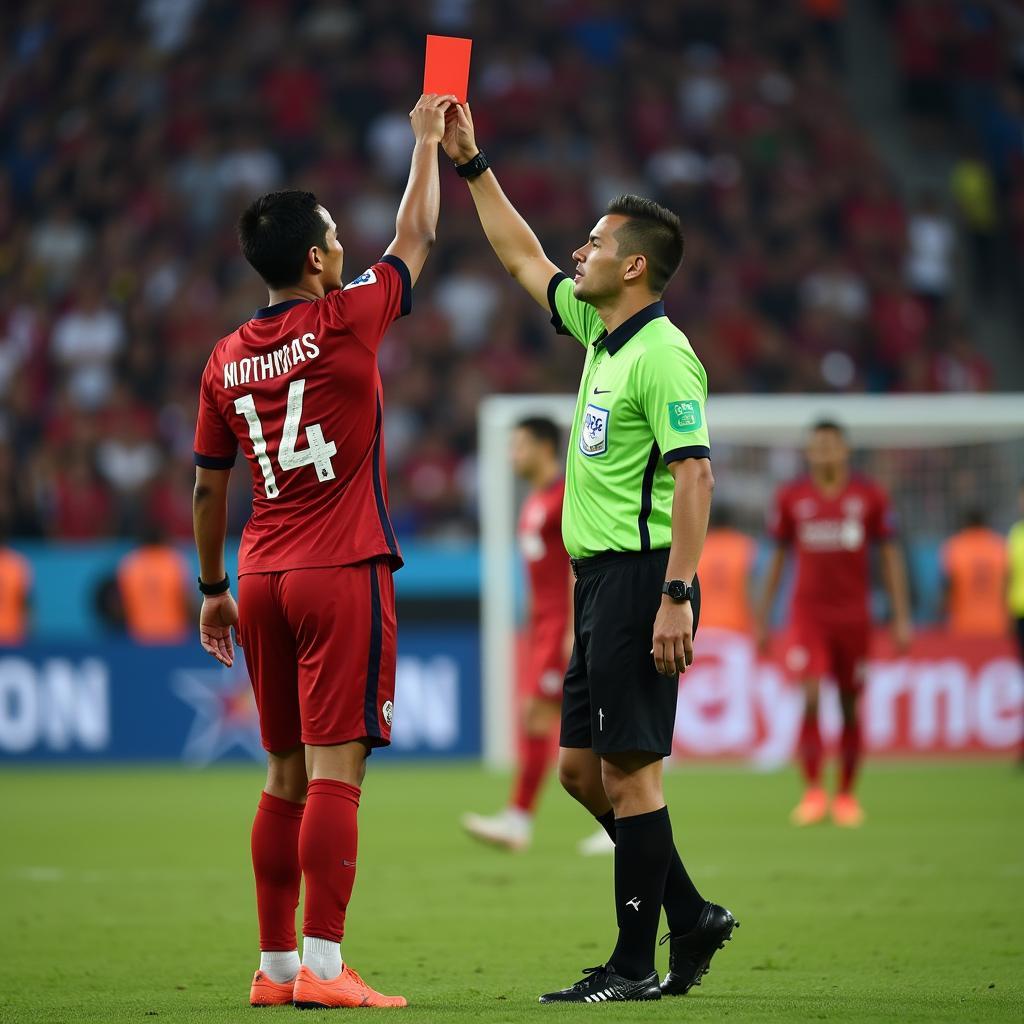Navigating Foul Play: Understanding Disciplinary Actions against Indonesian Football Players
October 29, 2024Football, a game of passion, skill, and strategy, thrives on fair play. However, the heat of competition can sometimes lead to infractions, requiring disciplinary actions. In Indonesia, a nation deeply passionate about football, ensuring fair play is paramount. This article delves into the intricacies of disciplinary actions taken against Indonesian football players who violate the rules of the game.
The Indonesian Football Disciplinary Code: A Framework for Fair Play
The Indonesian Football Association (PSSI) maintains a comprehensive disciplinary code to address misconduct on the field. This code aligns with FIFA’s regulations, ensuring consistency and fairness in handling violations.
Common Offenses and Their Consequences
From minor infringements to serious breaches of conduct, the disciplinary code outlines a range of penalties corresponding to the severity of the offense. Let’s explore some common violations and their potential consequences:
- Yellow and Red Cards: Similar to football leagues worldwide, Indonesian football utilizes yellow and red cards to manage player behavior during matches. Two yellow cards in a single game result in a red card, leading to the player’s expulsion. Red cards are also issued for serious offenses such as violent conduct or denying a goalscoring opportunity.
- Suspensions: Depending on the severity of the offense, players may face suspensions ranging from one match to multiple games.
- Fines: Monetary fines can be imposed for offenses like dissent towards match officials or unsportsmanlike behavior.
- Match-Fixing and Corruption: These severe offenses carry heavy penalties, potentially including lifetime bans from the sport and significant fines.
 Indonesian football player being shown a red card
Indonesian football player being shown a red card
The Disciplinary Process: Ensuring Fairness and Transparency
The PSSI employs a structured disciplinary process to ensure fairness and transparency:
- Incident Reporting: Match officials, such as referees and assessors, submit reports detailing any misconduct witnessed during a game.
- Disciplinary Committee Review: The PSSI’s disciplinary committee reviews these reports and any available evidence (e.g., video footage).
- Hearing and Decision: The committee may summon players and relevant parties for a hearing. Based on the evidence presented, they determine the appropriate disciplinary action.
- Appeals: Players and clubs have the right to appeal the disciplinary committee’s decision.
The Impact of Disciplinary Actions
Disciplinary actions aim to maintain the integrity of Indonesian football and foster a culture of respect and fair play. They serve as a deterrent against future misconduct and underscore the importance of upholding the spirit of the game.
Conclusion: Upholding the Spirit of Football in Indonesia
Disciplinary actions in Indonesian football play a crucial role in upholding the integrity and fairness of the sport. By adhering to a comprehensive code and a transparent disciplinary process, the PSSI strives to ensure a level playing field where talent, skill, and sportsmanship prevail.